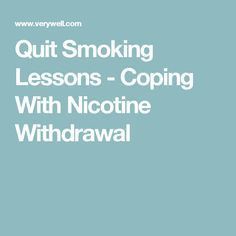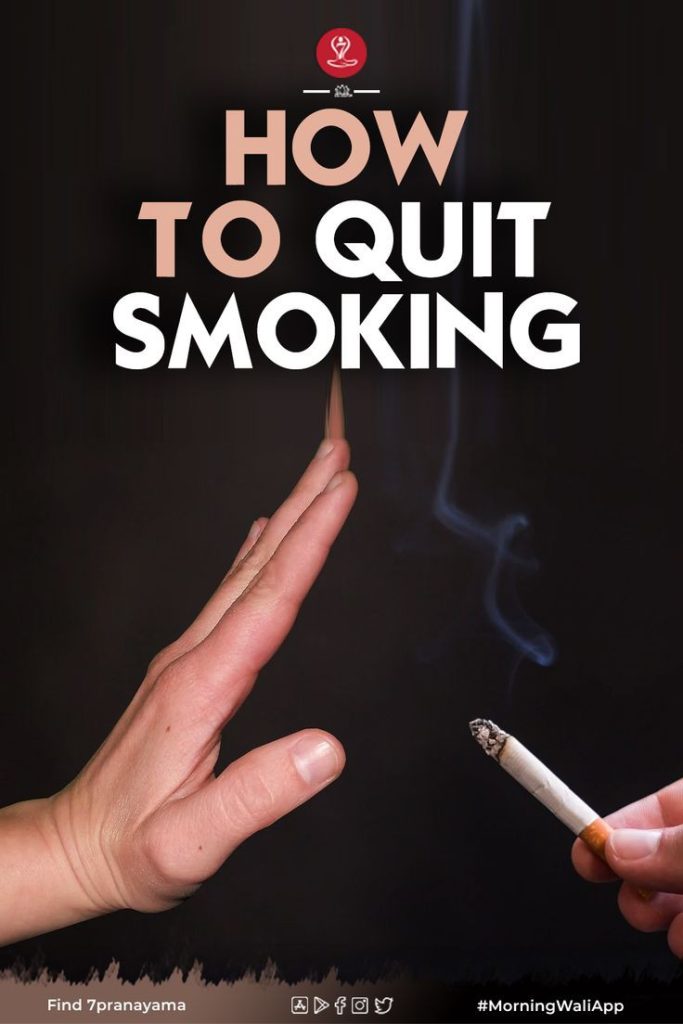Strategies for quitting smoking and coping with nicotine withdrawal is a blog post that is for you if you are ready to live a smoke-free lifestyle if you want to quit smoking or withdraw from nicotine.
Quitting smoking is hard, but it’s worth it. The health benefits are numerous, and you’ll feel better both physically and mentally. In this blog post, we’ll explore some strategies and tips to help you quit smoking for good.
Due to the presence of Nicotine in the tobacco product, quitting smoking could be a big problem. Nicotine is addictive and withdrawing from it is not so easy because of the ”pleasure” it releases to its users. Nicotine works by releasing dopamine, a chemical in the brain that is associated with pleasure and reward. This creates a “feel good” response in the brain that makes people want to continue smoking. Over time, people who smoke can develop a tolerance to nicotine, meaning they need to smoke more to get the same effect.
If this is you, then this blog post is going to guide you on coping with nicotine withdrawal and quitting smoking.

Why is quitting smoking beneficial
Quitting smoking is beneficial for many reasons. It has many benefits for both your physical and mental health.
- Quitting smoking reduces the risk of developing various diseases: When you quit smoking you decrease the chances of developing various diseases including lung cancer, heart disease, and stroke. Smoking has a lot of negative impacts on your health and therefore has the ability to cause certain diseases as mentioned. It is beneficial to quit smoking so as to never have to deal with these diseases.
- Quitting improves overall health by reducing the risk of developing respiratory problems: Smoking affects your respiratory system and goes ahead to cause respiratory problems such as chronic bronchitis and emphysema. The chemicals that are found in tobacco smoke irritate the lining of the airways which can cause coughing, wheezing, and shortness of breath. Over time, this leads to chronic lung diseases like the aforementioned. Smoking also reduces the body’s ability to fight off infection, making smokers more susceptible to infections, severe ones.
- Quitting smoking can help you save money: The amount of money poured into buying smokes would likely get you a good deed. Smoking causes you to spend a fortune on medical bills due to constant ill health but when you quit smoking you save a lot of money on medical bills and life insurance premiums. This is because you wouldn’t have to deal with ill health as much and so save money too.
- Quitting can improve your quality of life by reducing stress and anxiety: Smoking may temporarily reduce stress and anxiety by triggering a release of dopamine in the brain. However, this effect as said is temporary and is quickly followed by withdrawal symptoms, including irritability, anxiety, and increased cravings for nicotine. When you quit smoking, your brain starts to repair the damage that nicotine has caused. This includes restoring the natural balance of dopamine. Over time, this can lead to a reduction in stress and anxiety levels.
- Quitting smoking can set a positive example for your friends and family members: Everyone needs encouragement especially your friends and family members who may also be struggling with smoking. When they see you putting effort to quit smoking, they are convinced to get help too. So the next time you think of them, think of how much help you are giving them by quitting.

How to prepare to quit smoking
Preparing to quit smoking is an important step in the process. It helps prepare your mind and body for the process. The following are a few steps to guide you while you prepare to quit smoking.
- Decide on a date for when you want to quit. This will give you a target to work towards and will help you stay motivated during the process. Having a time range to look out for helps deal with procrastination and laziness because you might just want to be up and doing to beat time.
- Identify the triggers that make you want to smoke and develop a plan for dealing with them. For example, if stress is a trigger, you could try practicing relaxation techniques or engaging in an activity that helps you relax.
- Talk to your doctor about quitting and any medications or other resources that can help you. Talking to your doctor would help set you off on the right track and keep you from doing the opposite of your intentions.
- Tell your friends and family members about your plan to quit and have them hold you accountable. They could be your accountability partner.

Strategies to cope with Nicotine withdrawal
Nicotine withdrawal can be difficult to cope with, but there are some strategies that can help. These strategies include.
- Try to distract yourself with activities that will keep your mind and body busy. This could include exercise, reading, or playing a game. Distraction is a powerful tool that you should use wisely.
- Try to identify your cravings and address them with healthier alternatives. For example, if you usually have a cigarette with your morning coffee, you could try having a piece of fruit or drinking water instead.
- Use nicotine replacement therapy, such as gum, patches, or lozenges, to help reduce cravings. So that over time, instead of craving nicotine, you could craze for its substitute.
- Seek support from friends and family. The greatest support comes from friends and family while you are in this phase, the best thing to do is to seek their support. Do not shy away from them no matter how embarrassed or ashamed you might be.

How to maintain a smoke-free lifestyle
Maintaining a smoke-free lifestyle might not be so easy but here are a few helpful tips for maintaining a smoke-free lifestyle.
- Avoid triggers that make you want to smoke: This should be the most common tip. Temptations abound but you have to make a step to overcome it and that step is avoiding triggers such as being around other smokers or drinking alcohol.
- Make handy, healthier options to replace your cravings: Identify your cravings and make sure to have healthy snacks and drinks on hand to help you resist cravings. Such cravings are not to be encouraged rather be ready to resist.
- Develop healthy stress management techniques: Instead of relying on cigarettes to relieve stress, rather develop healthy stress management techniques such as deep breathing or meditation. Incorporating these techniques would help you develop resilience to stress and avoid turning to cigarettes as a coping mechanism.
- Celebrate your milestones: No matter how small or big such as reaching one week, one month, or one year without smoking, try to celebrate yourself. You deserve it and a reward too.
- Try not to beat yourself up if you flunk: Remember that relapses are normal and don’t mean that you’ve failed. Failure might be inevitable, it is harder to be responsible, so when you feel like trash, look yourself in the mirror and remind yourself how good you are doing so far. Do not beat yourself up and praise and encourage you as much as you can.
Conclusion
Quitting is not such an easy habit but when you are intentional you will definitely get there.
Strategies for quitting smoking and coping with nicotine withdrawal have everything you would need to get through this phase.
Interested in our article, the impact of smoking on your body system? Click HERE.
How helpful was this?
Let me know in the comments.



